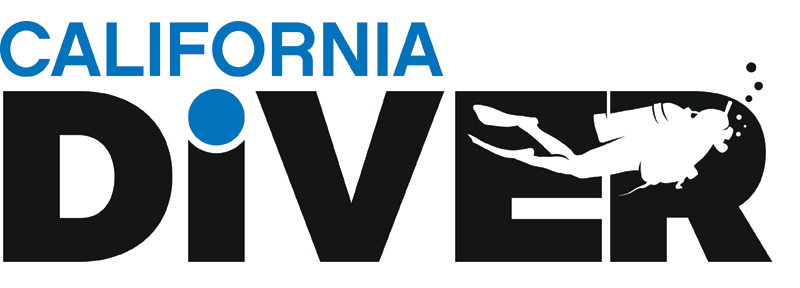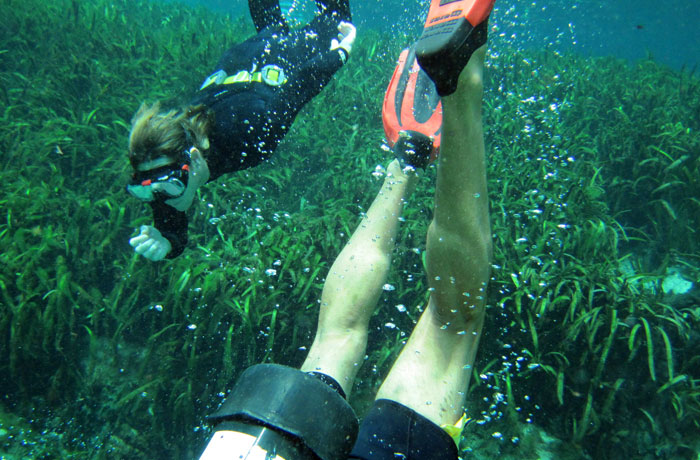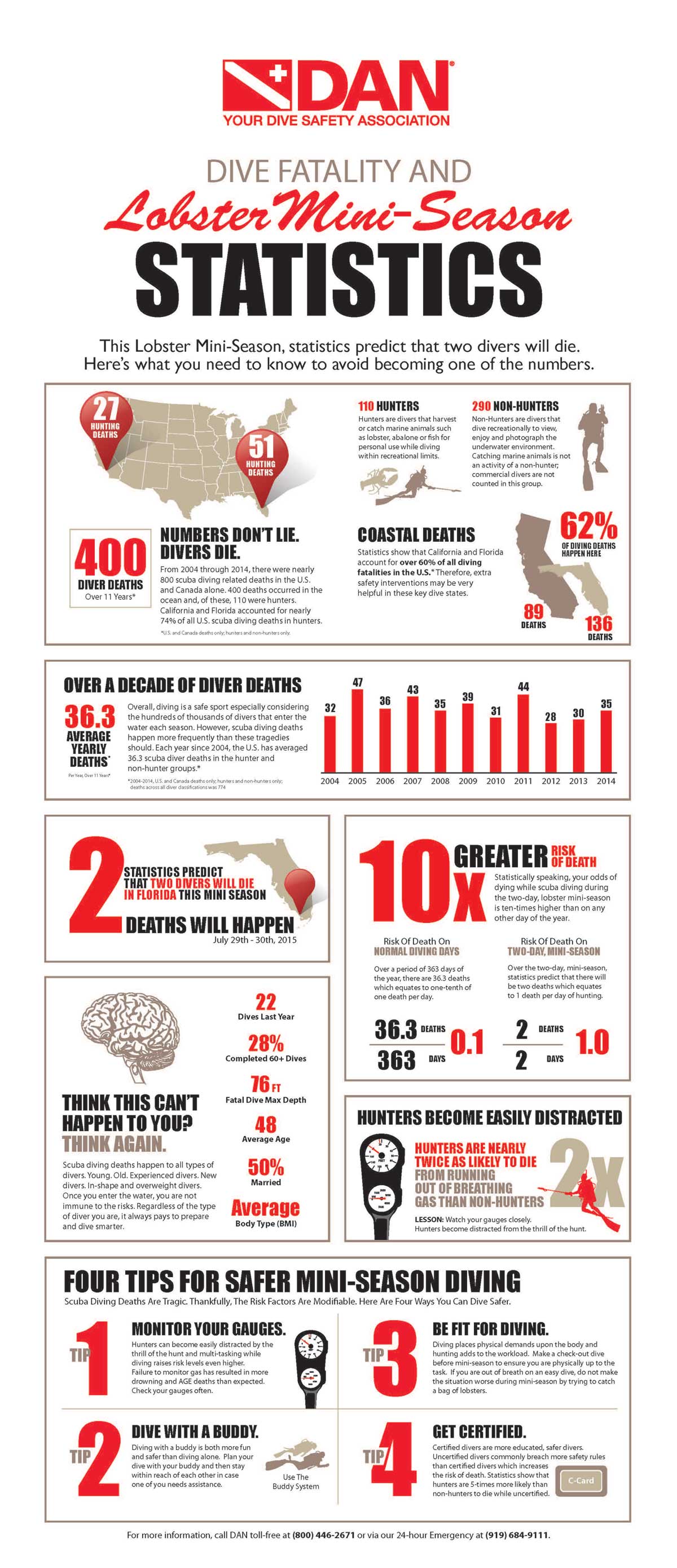Florida’s mini-season, also known as “sport-season,” is an annual event that attracts thousands of divers to Florida to hunt lobster. Tragically, the season is tarnished by deaths that could have been prevented with better dive preparation and execution.
In recent years, DAN has published research indicating an unexpectedly high incidence of diving deaths during the lobster mini-season. Most recently, a DAN study entitled Recreational Diving Fatalities; Harvesters versus Non-Harvesters examined the causes of death for 400 male divers between the years 2004 – 2014. The objective of DAN’s research was to determine what actions, if any, place lobster divers at higher risk of dying. Once these actions were identified, DAN researchers could make recommendations to keep divers safer.
DAN Final Information for this study was collected from news reports, law enforcement, medical examiners, witnesses and next of kin. Since this study focused solely upon 110 divers engaged in hunting and 290 non-hunters, groups such as non-recreational divers, trainees, divers in freshwater lakes, quarries and dive parks were excluded from the research.
The results of this study highlighted the real and significantly elevated dangers of lobster mini season. Over the last 10 years, the two-day season in Florida accounted for almost half of all underwater hunting deaths in the state (22 of 51, 43%), an average of two deaths over the same two days each year.
To further educate divers about the risks associated with lobster mini-season, DAN has developed an infographic style poster for dive shops using fatality data from the study. DAN’s new poster delivers its serious message with eye-catching graphics and includes four tips for safer mini-season diving. This poster can be downloaded from the DAN website and printed and hung on the wall in a dive shop for maximum visibility and impact.
“Our study showed that the hunter and non-hunter groups share many characteristics such as age, BMI, years of dive experience and number of completed dives,” said Dr. Peter Buzzacott, DAN Director of Injury Monitoring and Prevention. “This research revealed that the act of hunting involves additional hazards. The risks faced by diving hunters appear to be modifiable through better education, awareness and preparedness. Hunting lobster is a strenuous sport and requires more preparation than basic recreational diving since the consequences of running out of gas can be severe. Safety should be every diver’s first priority,” added Buzzacott.
“Though no denominator has been established to estimate the absolute risk of dying while hunting underwater, this study shows that there are some hunting-specific possible targets for safety innovations,” said Dr. Petar Denoble, Vice President, DAN Mission. “We learned that hunters more commonly ran out of breathing gas and had a higher percentage of gas embolisms than non-hunters. This may have been due to the hunters becoming distracted and ignoring their gauges. Task overload can be very dangerous and our research suggests this too frequently results in death during mini-season,” added Denoble.


